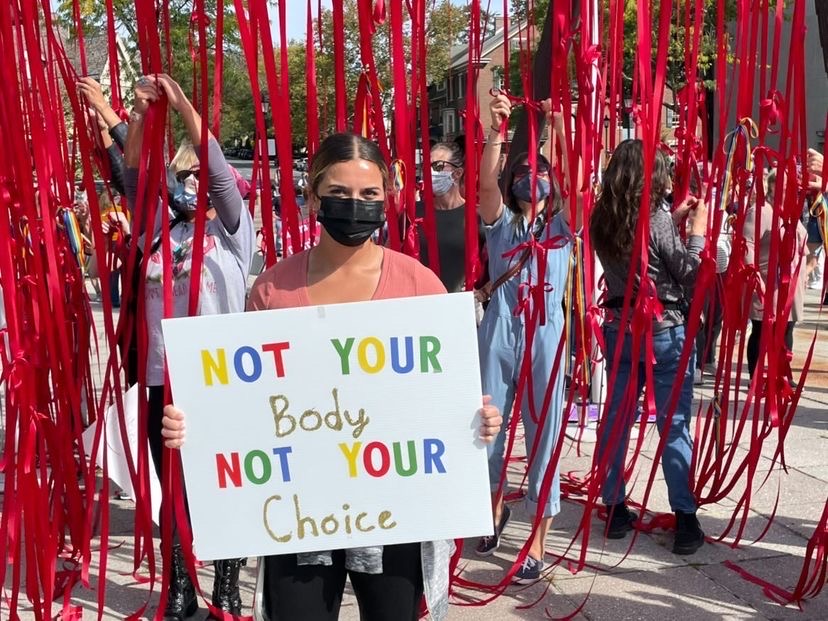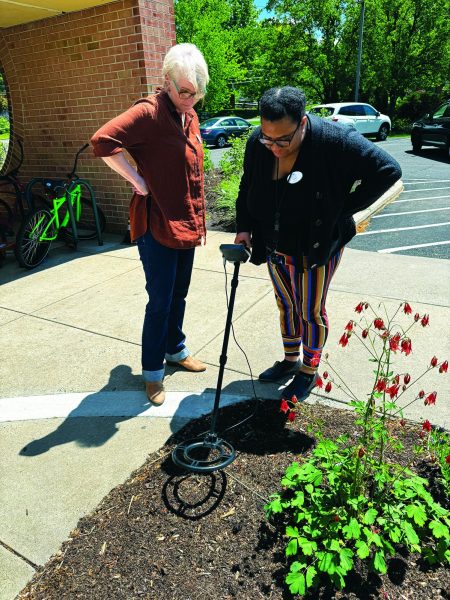Texas abortion ban sparks reaction from students
The Texas Heartbeat Act bans all abortions after six weeks of pregnancy.
Using her voice…Attending a women’s march in Phoenixville on October 2, junior Ava Saydam protests for abortion rights. Many protests for safe and legal access to abortion occurred throughout the country following the passage of the Texas Heartbeat Act.
In an attempt to limit abortions, the Texas Heartbeat Act came into effect on September 1 in Texas, officially criminalizing all abortions after six weeks of pregnancy, including in cases of rape and incest. Some students share negative reactions.
Junior Rachel Schewe said that the passage of this act made her “sad and scared” for women in Texas because they are “left without options.” “It’s really terrifying to me,” Schewe said.
Junior Ava Saydam and freshman Reese Richardson said that abortion should be a constitutional right and that people should have the right to bodily autonomy.
This law also does not make exceptions for cases of incest or rape.
Schewe said that people who are impregnated due to rape should not be “forced to carry out the pregnancy” because it may be “physically and emotionally damaging to them.”
Instead of requiring public officials to enforce this law, the law places the power in private citizens by allowing them to sue anyone who aides someone in getting an abortion, such as a driver that transported the person to a clinic. The person who is suing does not need to provide proof of connection to the person they are suing and can earn a minimum of $10,000 if successful.
Junior Ava Beskar said that she is “disgusted that this law deputizes private citizens and allows them to act on their own prejudices.”
According to Schewe, many people that are anti-abortion are so for religious reasons. “We have separation of church and state,” Schewe said. “It’s okay for them to have the opinion that abortion is bad, but that doesn’t mean that they can force this opinion on all women and leave all women with no options.”
Many people are concerned that other conservative states like Texas will try to pass similar legislation as the Texas Heartbeat Act.
Richardson said that she thinks other red states will be influenced by Texas in a “domino effect” way.
“This opens the door to challenge Roe v. Wade again and possibly overturn it,” Saydam said.
According to a study conducted by the Guttmacher Institute, countries with legal and safe access to abortions have lower abortion rates than countries with heavily restricted access to abortions.
Countries with heavily restricted access to abortions also have higher rates of deaths from abortions due to the lack of access to medical professionals and appropriate environments in which to perform abortions.
The study also found that easy access to contraception lowers abortion rates.
Beskar said that if people who are anti-abortion want to lower abortion rates, that they should “focus on legislation that reduces the need for people to have abortions, like funding foster care, and teaching proper sex education in schools instead of just teaching abstinence.”







